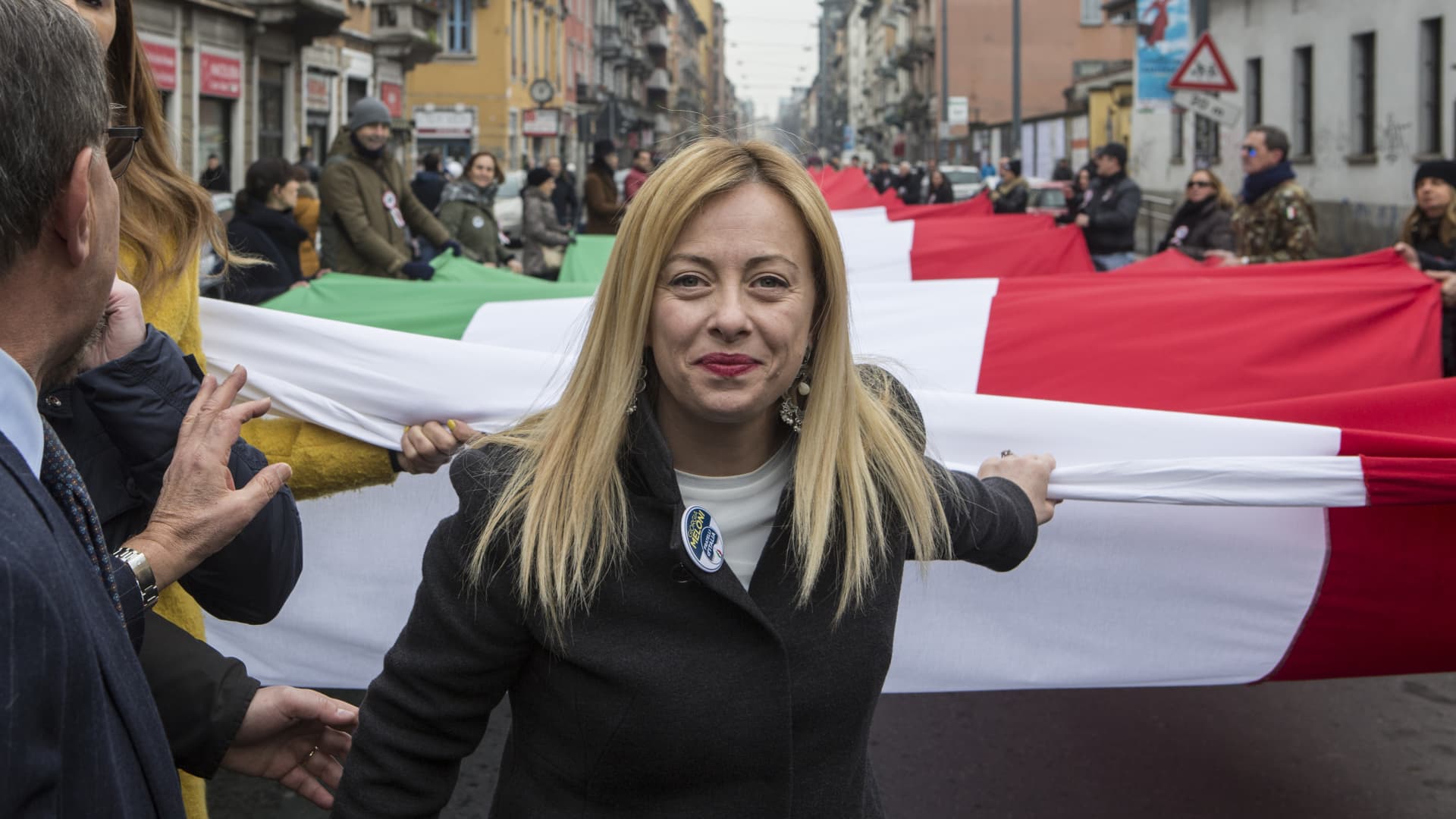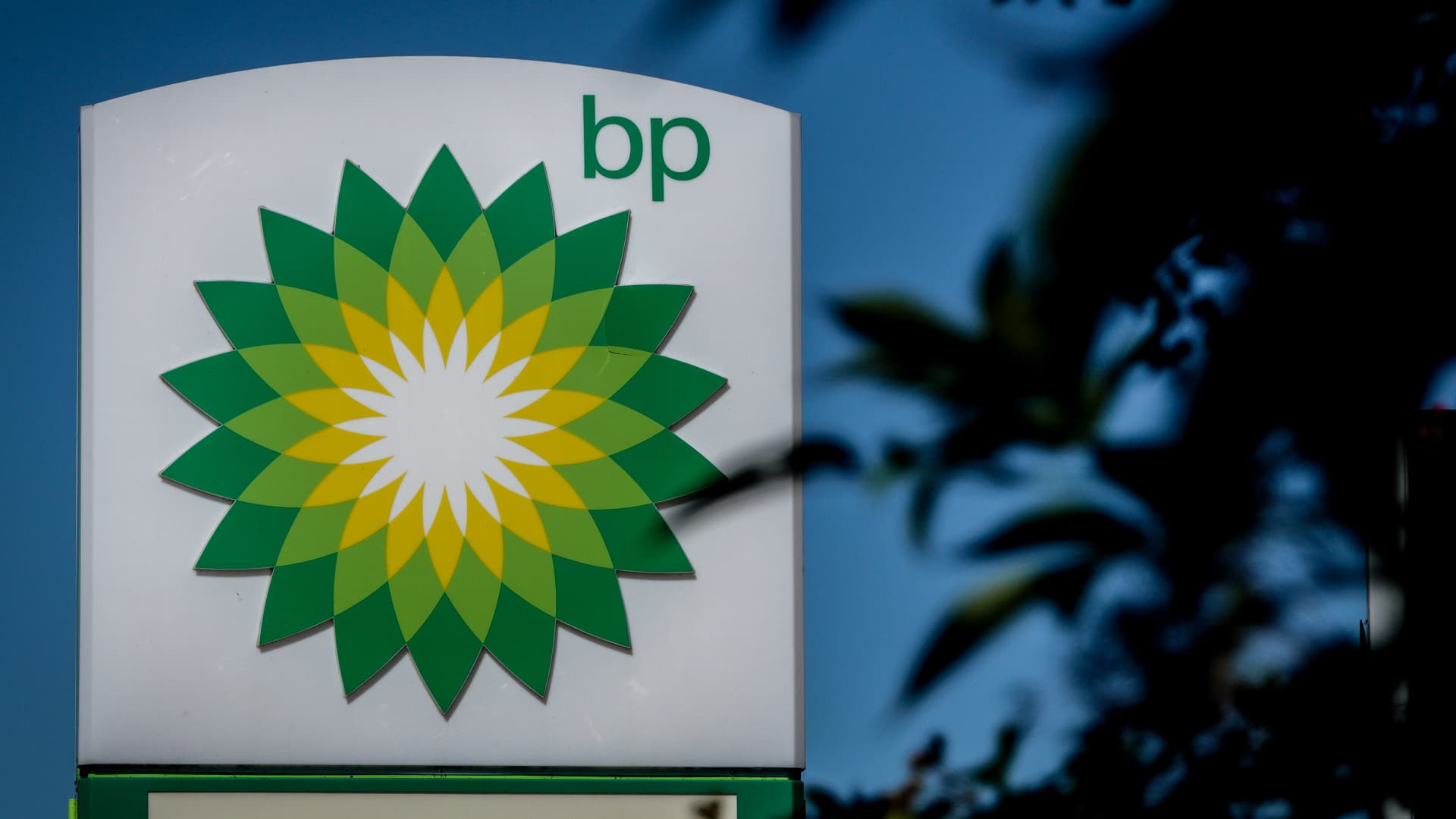
Italy’s voters head to the polls on Sunday in a snap general election that is likely to see a government led by a far-right party come to power, marking a massive political shift for a country already dealing with ongoing economic and political instability.
Polls prior to Sept. 9 (when a blackout period began) showed a right-wing coalition easily winning a majority of the seats in the slimmed-down lower and upper houses of parliament.
The coalition is led by Giorgia Meloni’s far-right Fratelli d’Italia (Brothers of Italy), and includes three other right-leaning parties: Lega, under Matteo Salvini, Silvio Berlusconi’s Forza Italia and a more minor coalition partner, Noi Moderati.
The Brothers of Italy party stands out from the crowd and is expected to gain the largest share of the vote for a single party. It’s seen getting almost 25% of the vote, according to poll aggregator Politiche 2022, far ahead of its nearest right-wing ally Lega, which is expected to get around 12% of the vote.
On the center-left, the Democratic Party led by former Prime Minister Enrico Letta is seen gaining around 21% and its coalition partners (the Green and Left Alliance, More Europe and Civic Commitment) are all expected to gain very low single-digit shares of the vote.
The snap election follows the resignation of Prime Minister Mario Draghi in July, after he failed to unite a fractious political coalition behind his economic policies.
Who are ‘Brothers of Italy?’
An election win by Fratelli d’Italia could see the party’s leader, Giorgia Meloni, become Italy’s first female prime minister. She would also be the first far-right leader since Benito Mussolini’s rise to power in Italy one hundred years ago.
Carlo Ciccioli, Fratelli d’Italia’s president in an eastern Italian region of Le Marche, told CNBC that the party’s meteoric rise in popularity had “spread to the rest of Italy,” and that the party was ready to govern.
“At this moment, we’re likely to be the largest party in the country — which can only be confirmed by the vote on Sunday, not any polls. Why do I think Fratelli d’Italia will make it? Because our leadership is one of substance. Giorgia Meloni is prepared both culturally and politically,” he told CNBC’s Joumanna Bercetche.
The Fratelli d’Italia party was created in 2012, but has its roots in Italy’s 20th century neo-fascist movement that emerged after the death of fascist leader Mussolini in 1945.
After various iterations, a group including Giorgia Meloni split from Berlusconi’s People of Freedom (or PdL) party to launch Fratelli d’Italia. Its name refers to the first words in Italy’s national anthem.
The party has grown in popularity since then and has now overtaken populist party Lega, having chimed with sections of the public who are concerned about immigration (Italy is the destination for many migrant boats crossing the Mediterranean), the country’s relationship with the EU and the economy.
Analysts say another reason for the party’s popularity was its decision not to participate in Draghi’s recent broad-based coalition. This distinguished Meloni “as an outsider within the political system and gaining more media visibility as the only opposition figure,” Teneo risk consultancy’s Co-President Wolfango Piccoli said in a recent note.
Roots and policies
In terms of policy, Fratelli d’Italia has often been described as “neo-fascist” or “post-fascist,” its policies echoing the nationalist, nativist and anti-immigration stance of Italy’s fascist era. For her part, however, Meloni claims to have rid the party of fascist elements, saying in summer that Italy’s right-wing had “handed fascism over to history for decades now.”
Still, its policies are socially conservative to say the least, with the party opposing gay marriage and promoting traditional “family values,” with Meloni saying in 2019 that her mission was to defend “God, homeland and family.”
When it comes to Europe, Fratelli d’Italia has reversed its opposition to the euro, but champions reform of the EU in order to make it less bureaucratic and less influential on domestic policy. Its plan is encapsulated in one of its slogans: “A Europe that does less, but does it better.”
On an economic level, it has deferred to the center-right coalition’s position that the next government should cut sales taxes on certain goods to alleviate the cost of living crisis, and has said Italy should renegotiate its Covid recovery funds with the EU.
Fratelli d’Italia has been pro-NATO and pro-Ukraine and supports sanctions against Russia, unlike Lega which is ambivalent about those measures.
However, the party has also been friendly toward one of the EU’s main antagonists, Hungary’s President Viktor Orban, supporting the strongman leader after a European Parliament resolution decided Hungary can no longer be defined as a democracy.
Politicians from the center-left fear relations with the rest of Europe would change under a Meloni-led government. Enrico Letta, the head of the Democratic Party, told CNBC’s Steve Sedgwick that Italy had two options when it came to Europe — staying in the top tier of economies and governance, or being “relegated.”
“[The] first option is to keep our position in ‘first division.’ First division means Brussels and Germany, France, Spain, the big European countries, the founders, like us. {The] second option is to be relegated in the second division with Poland and Hungary, deciding to stay with them against Brussels, against Berlin, against Paris and Madrid,” he said during the Ambrosetti economic forum in early September.
“I think it would be a disaster for Italy to choose the second division,” he said.
Meloni has been described as something of a political chameleon by some, with analysts noting changes in her political position over time.
“There is … a question about which Meloni will be leading the government: the one who praised Hungary’s Viktor Orban or the one who supported Mario Draghi’s anti-Russia stance?,” Teneo’s Wolfango Piccoli said in a note earlier in September.
“The sovereigntist who called for Italy’s exit from the euro or the reassuring leader that during the election campaign embraced a more conventional line towards Europe? The populist who promoted the idea of a naval blockade in the Mediterranean to stop the illegal influx of immigrants … or the more responsible conservative politician who talked about a European solution to the issue?,” he said.
This being Italy (a country that has infamously had 69 governments since World War II), some instability and turbulence is expected in the aftermath of the vote, not least because divisions are likely to come to the fore between the FdI, Lega and Forza Italia that make up the right-wing alliance.
“Salvini and Silvio Berlusconi will be difficult coalition partners, desperate to regain visibility after a (likely) beating down on ballot day by stressing policy differences, including on issues like fiscal discipline, pensions and Russia sanctions. Policy differences and personal rivalries will come to the fore soon after the vote, causing turbulence and undermining the effectiveness of the new executive,” Piccoli added.




